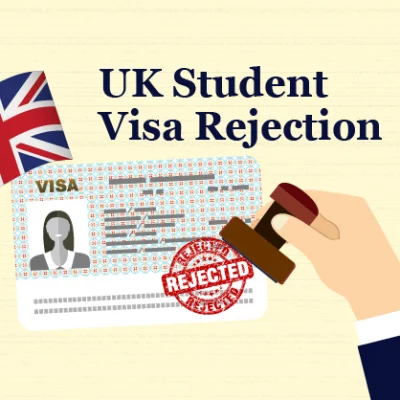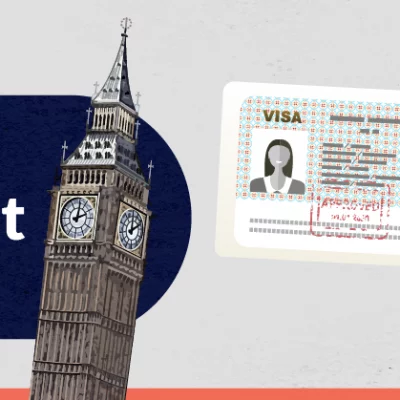UK Student Visa Requirements
Table of Contents
Want to study in the UK, but facing difficulties with the visa process? Don’t worry we are there to help you out.
In this blog, we will talk about the types of student visas offered by the UK, what are the requirements for getting a visa, how long you can stay, when can you arrive, and what are the costs involved. These topics have some very important and new information so do read till the end.
Let’s get started.
Types of Study Visa
- Student visa (previously known as Tier 4 visa)
If you are 16 or over and want to study in the UK, you’ll need to apply for a student visa through the Student Route. This Student Route falls under the UK’s new points-based immigration system and from 5 October 2020, it has replaced the Tier 4 Route.
The earliest you can apply for a visa is 6 months before you start your course.
- Short-term student route (previously short-term study visas)
These visas are available to students who want to join courses that are up to six months long or English language courses up to 11 months long.
What are the documents required?
UK student visas are awarded on a points-based system now. So, in order to meet all the UK student visa requirements, you’ll need to provide:
- A current passport or other valid travel documentation
- Recent photographs
- Confirmation of Acceptance for Studies (CAS) reference number and documents used to obtain CAS
- Proof of adequate English language skills if you’re not from an English-speaking country
- Evidence of funds to provide your living expenses for the duration of your course
- Academic Technology Approval Scheme (ATAS) clearance certificate (if required)
How long can you stay?
This depends on the length of your course and what study you’ve already completed.
If you’re 18 or over and your course is at degree level, you can usually stay in the UK for up to 5 years. If it’s below degree level, you can usually stay in the UK for up to 2 years.
If you are going for a short-term course then you can stay in the UK for the length of your course plus an extra 30 days as long as your stay is no longer than 11 months.
Cost of Visas
The current fee for the Tier 4 (General) student visa is £348, with an additional £348 fee per person for any dependents. You’ll also need to pay a healthcare surcharge of £470 per year in order to access the National Health Service (NHS) during your stay.
The Short-Term Study Visa costs £97 for a 6-month visa and £186 for an 11-month visa. You’ll also have to pay the healthcare surcharge as part of your online application.
When can you arrive in the UK?
You can arrive in the UK before your course starts. This can be either:
- Up to 1 week before, if your course lasts 6 months or less
- Up to 1 month before, if your course lasts more than 6 months
What you can and cannot do under these visas?
This is an important point because being in a foreign country we are mostly unaware of their rules and regulations. So to avoid breaking any of them and landing in a problem, it is good to be aware of them beforehand.
Under a Tier 4 student visa, you can study and work as a student union sabbatical officer. How much you can work depends on what you’re studying and whether you’re working in or out of term time.
But there are certain things you cannot do under this visa, like:
- You cannot claim public funds (benefits) and pensions
- Cannot work in certain jobs, for example as a professional sportsperson or sports coach
- You cannot be self-employed
- You cannot study at an academy or a local authority-funded school (also known as a maintained school)
Similarly
Under a Short-term study visa, you can only study the course you have chosen and cannot
- study on any other course or change your course while in the UK
- study at a state-funded school
- work or carry out any business (this includes paid or unpaid work, work experience or work placements)
- extend this visa
- bring family members (‘dependants’) with you on this visa
- apply for most benefits (public funds) or the State Pension
So, these are some important things about the UK study visa.











